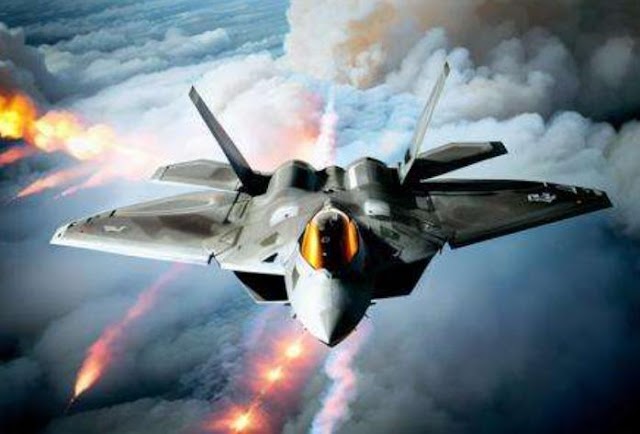Air to Air Missiles: Air-Launched Precision and Defence Systems
 |
| Air to Air Missiles |
Air-Launched Variant Missiles:
1. Baktar-Shikan (Air-launched variant)
- Overview: Baktar-Shikan takes to the skies in its air-launched variant, showcasing adaptability and precision in aerial operations.
2. Barq (Laser-Guided Missile) – (Fired by Burraq UCAV)
- Overview: Barq, a laser-guided missile fired by the Burraq UCAV, exemplifies precision-guided technology in unmanned aerial vehicle operations.
Cruise Missiles:
3. Ra'ad (Hatf VIII) – Cruise Missile
- Overview: Ra'ad (Hatf VIII), a cruise missile, demonstrates long-range precision capabilities, contributing to Pakistan's strategic Air to Air Missile arsenal.
4. Ra'ad-II – Cruise Missile
- Overview: Ra'ad-II continues the legacy of the cruise missile series, introducing advancements in range, accuracy, and strategic impact.
Precision-Guided Glide Munitions:
5. H-2 SOW / H-4 SOW
- Overview: H-2 SOW and H-4 SOW, precision-guided glide munitions, represent cutting-edge technology in delivering precision strikes on targets.
6. GIDS Takbir - Precision-Guided Glide Bomb
- Overview: GIDS Takbir, a precision-guided glide bomb, adds versatility to Pakistan's arsenal, offering precision in aerial warfare.
Anti-Radiation Missiles:
7. MAR-1 – Anti-Radiation Missile – (Brazil)
- Overview: MAR-1, an anti-radiation missile from Brazil, enhances Pakistan's capabilities in countering enemy radar systems.
8. CM-400AKG – Anti-Radiation Missile – (China)
- Overview: CM-400AKG, an anti-radiation missile from China, contributes to electronic warfare capabilities, offering a strategic advantage.
9. LD-10 – Anti-Radiation Missile – (China)
- Overview: LD-10, another anti-radiation missile from China, adds to the diverse array of capabilities in electronic warfare.
Precision-Guided Bombs and Missiles:
10. LS-6 – Precision-Guided Glide Bombs – (China)
- Overview: LS-6, precision-guided glide bombs from China, showcases advanced technology in delivering accurate and effective airstrikes.
11. C-705KD – Imaging Infrared Homing Guided Missile – (China)
- Overview: C-705KD, an imaging infrared homing guided missile from China, offers precision targeting capabilities for aerial operations.
12. C-802AK – Air-launched variant – Cruise Missile – (China)
- Overview: C-802AK, the air-launched variant of the cruise missile from China, extends precision strike capabilities to aerial platforms.
Guided Missiles from Various Countries:
13. AGM-65 Maverick – Electro-Optical Guided Missile – (USA)
- Overview: AGM-65 Maverick, an electro-optical guided missile from the USA, brings American precision technology to the forefront.
14. Harpoon Block-2 – Air-launched variant – Active Radar Homing Guided Missile – (USA)
- Overview: Harpoon Block-2 in its air-launched variant showcases active radar homing technology, enhancing anti-ship capabilities.
15. Exocet AM-39 – Air-launched variant – GPS/INS Guided Missile – (France)
- Overview: Exocet AM-39, an air-launched variant with GPS/INS guidance from France, adds to the precision strike capabilities of aerial platforms.
Air Defence Systems:
16. HQ-2B – Air Force – (China)
- Overview: HQ-2B, an air defence system from China, reinforces Pakistan's airspace protection capabilities.
17. Spada-2000 – Air Force – (Italy)
- Overview: Spada-2000, an air defence system from Italy, contributes to the comprehensive air defence strategy of the Pakistani Air Force.
18. Crotale – Air Force – (France)
- Overview: Crotale, an air defence system from France, adds to the diverse range of capabilities in safeguarding airspace.
Air and Naval Defence Systems:
19. HQ-9P – Army – (China)
- Overview: HQ-9P, an air and naval defence system from China, enhances Pakistan's capabilities in protecting both land and sea.
20. HQ-16AE – Army – (China)
- Overview: HQ-16AE, an army air defence system from China, contributes to a robust integrated air and missile defence strategy.
21. HQ-7B – Army and Navy – (China)
- Overview: HQ-7B, serving both the army and navy, is a versatile air defence system from China, bolstering overall defence capabilities.
Naval Defence Systems:
22. LY-60N – Navy – (China)
- Overview: LY-60N, a naval air defence system from China, plays a crucial role in safeguarding maritime interests.
23. Seacat – Navy – (UK)
- Overview: Seacat, a naval air defence system from the UK, contributes to Pakistan's naval capabilities in protecting sea borders.
24. CAMM-ER – Ordered by Navy – (Italy)
- Overview: CAMM-ER, ordered by the Navy and from Italy, enhances naval air defence capabilities, providing an edge in maritime security.
25. RIM-116 (SeaRAM) – Ordered by Navy – (USA)
- Overview: RIM-116 (SeaRAM), ordered by the Navy and from the USA, represents advanced shipborne air defence technology.
26. SIMBAD-RC – Ordered by Navy – (France)
- Overview: SIMBAD-RC, ordered by the Navy and from France, contributes to maritime defence, showcasing the versatility of naval air defence systems.
Conclusion:
Navigating Pakistan's Precision Arsenal – A Holistic Perspective on Advanced Air-Launched and Guided Missile Technologies.
FAQs: Frequently Asked Questions
1. Q: How does the Baktar-Shikan air-launched variant enhance Pakistan's aerial capabilities?
A: The Baktar-Shikan air-launched variant enhances Pakistan's aerial capabilities by demonstrating adaptability and precision in diverse operations, providing a strategic edge in the skies.
2. Q: What strategic contributions does Ra'ad (Hatf VIII) make as a cruise missile in Pakistan's arsenal?
A: Ra'ad (Hatf VIII) contributes significantly to Pakistan's strategic capabilities as a cruise missile, showcasing long-range precision capabilities for strategic and targeted strikes.
3. Q: What advancements does Ra'ad-II bring to the cruise missile series, and how does it impact Pakistan's strategic capabilities?
A: Ra'ad-II builds upon the cruise missile series with advancements in range, accuracy, and strategic impact, further enhancing Pakistan's strategic missile capabilities.
4. Q: How do H-2 SOW and H-4 SOW contribute to Pakistan's aerial warfare capabilities as precision-guided glide munitions?
A: H-2 SOW and H-4 SOW represent cutting-edge technology in precision-guided glide munitions, providing Pakistan with the capability for accurate and effective strikes in aerial warfare.






.jpg)



.jpeg)
0 Comments
If you have any doubts. Please let me know. I would be happy for your kind suggestion.